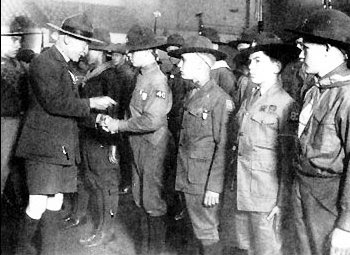Stereotypes are as ancient as human culture itself. It often confounds with chauvinism; they are simplified and standardized grouping ideas based on prior theories. They might be either negative or positive, but they all are highly misleading and unfair. The effects of stereotyping can fluctuate, but they are all relatively negative and not always plausible until long periods of time passes by. Furthermore, negative effects may include scape-goating, prevention of emotional identification, forming wrong opinions of people, distress, erroneous judgment, and impaired performance.  Conventionalizing distressingly reminds the victims who are being judged about how society looks at them. Conventionalizing in itself is harmless. It is the resource allocation and decision-making on rights in a society that leads to creating discrimination of one or the other kind. Either its denial or it is patronage.Most people end up in a negative conventionalizing bucket. They are forced to accept the inequitable consequences which result from this; few try to lift themselves out of this zone or at least challenge the practice, but they are easily pushed back to attune. The sad part is that most people give up and surrender themselves to such rituals for survival and trouble free living. On the other hand, we have benefits inhibited by positive stereotypes that go hand in hand within the social strength of power structures. It turns out into a different type of self-fulfilling outcome. They enjoy position feedback and attention, support structure, lion’s shares of resources and a crafted environment to thrive for success. Stereotyping can easily break an individual’s morale, which will lead to decreased performance rate, absenteeism, less employee engagement, etc. Stereotyping a person, especially in a workplace is the worst thing people can do. Not only it will affect on employee’s mindset but, it will also lay a setback to the growth of the organization. Let us have a detailed look at some common stereotypes across the world; few will definitely make you laugh while others will give you a hard time imagining it.
Conventionalizing distressingly reminds the victims who are being judged about how society looks at them. Conventionalizing in itself is harmless. It is the resource allocation and decision-making on rights in a society that leads to creating discrimination of one or the other kind. Either its denial or it is patronage.Most people end up in a negative conventionalizing bucket. They are forced to accept the inequitable consequences which result from this; few try to lift themselves out of this zone or at least challenge the practice, but they are easily pushed back to attune. The sad part is that most people give up and surrender themselves to such rituals for survival and trouble free living. On the other hand, we have benefits inhibited by positive stereotypes that go hand in hand within the social strength of power structures. It turns out into a different type of self-fulfilling outcome. They enjoy position feedback and attention, support structure, lion’s shares of resources and a crafted environment to thrive for success. Stereotyping can easily break an individual’s morale, which will lead to decreased performance rate, absenteeism, less employee engagement, etc. Stereotyping a person, especially in a workplace is the worst thing people can do. Not only it will affect on employee’s mindset but, it will also lay a setback to the growth of the organization. Let us have a detailed look at some common stereotypes across the world; few will definitely make you laugh while others will give you a hard time imagining it.
Gender Stereotype at Workplace
Men:
- They are either doctors or pharmacists, they are not nurses.
- All men love working on automobiles and car.
- Men are meant for filthy jobs like mechanics and construction; they are not meant for cosmetologists, gynecologists or secretaries either.
- Men are not responsible for taking care of domestic work and kids. However, efficient they might be but they don’t easily get hired in a domestic line or as a manny (male nanny).
- As extracurricular, men embrace in just sports, video games, fishing, camping, and hiking.
- Men are messy, lazy, and they don’t get PA jobs easily.
- Men always hold top jobs.
- Men are always good with math
- Men cannot sew, cook or do crafts either.
- Men always work in Stem Fields.
Women:
- They are for clean jobs like teachers, librarians, principles, and secretaries.
- Most amounts of women are nurses, the ones who happen to be doctors are very less.
- Women are not as strong as men are.
- They are supposed to earn less money in comparison to men.
- Women who stay as house moms are the best.
- Women are supposed to act as submissive and follow whatever they are instructed to.
- Women love to sing and dance.
- Women are supposed to cook, raise children and take care of the household.
- They cannot become a politician.
- They should always look pretty and presentable.
- They suck in technical skills.
The Age Issue at Workplace
The Gen X and Gen Y. People love stereotyping the youth or the old on a positive or negative note depending upon with whom they identify themselves the most. They believe that the technology innovation and orientation can only be driven by the young brigade. The belief that old is gold doesn’t fit exactly in all the cases, and it is known as classical stereotyping. Certainly, young generations are more inclined towards technology and old for establishing institutions, but this is not a hard and fast rule. This keeps happening at workplace frequently because, most of the executives in an organisation are still the one in their late fifties or so. When it comes to the sharing of ideas, the younger slots is more convenient with the technological use and they have a different type of mindset as compared to the older generation and this causes a disapproval amongst the both set of people. The older slot thinks that they are experienced so they know better while the younger slot is quite confident of their verified knowledge from the internet and other technologies available.
MBA Fiasco at Workplace
The last sixty years have given birth to a new myth, a new stereotype, especially in developing countries- the people with an MBA degree are the only one who can get a managerial post. Thus, this belief is discriminating and a very negative stereotype, especially in a workplace culture. There is no evidence available to suggest that the MBA holders can only make good corporate leaders, entrepreneurs, managers, etc.
Africa Is an Ebola Hotspot
Most people think the same. Ever since the first Ebola outbreak in Africa, everyone has been avoiding the continent like a plaque. In reality, the vast Africa’s fifty-five countries are totally Ebola-free and are likely not getting ever affected by such disease according to the studies. Usually, the expats and travellers feel hesitant to travel to Africa because they have their minds revolving around such beliefs that residing in this country will make them prone to improper health and sanitary conditions, Ebola, Aids, water scarcity, and many other major diseases, which they feel keeps outbreaking in Africa every now and then. Any stereotype whether it is positive and negative blinds us to the capability of humans. By challenging our stereotypes, we can re-establish the human dignity surrounding us.










